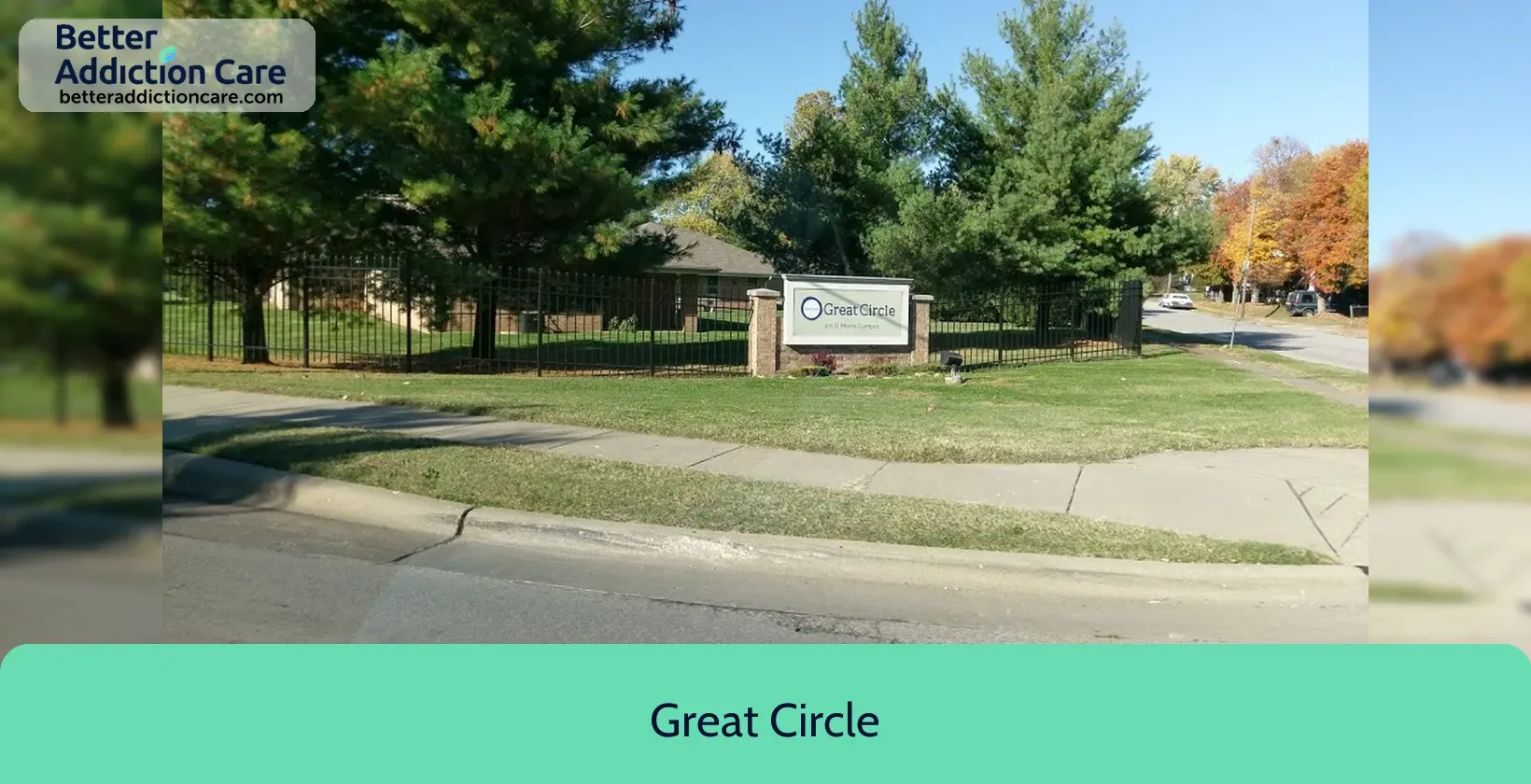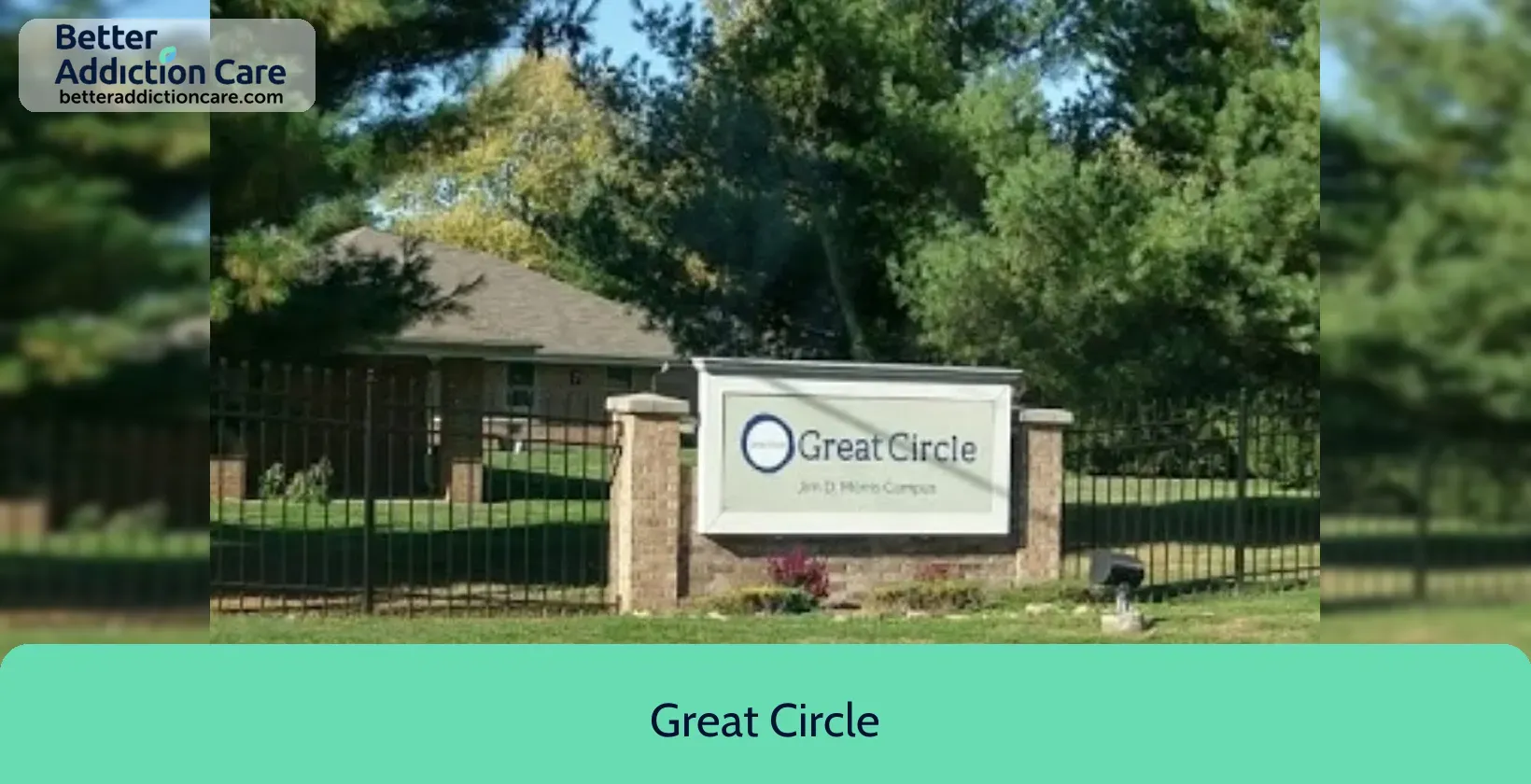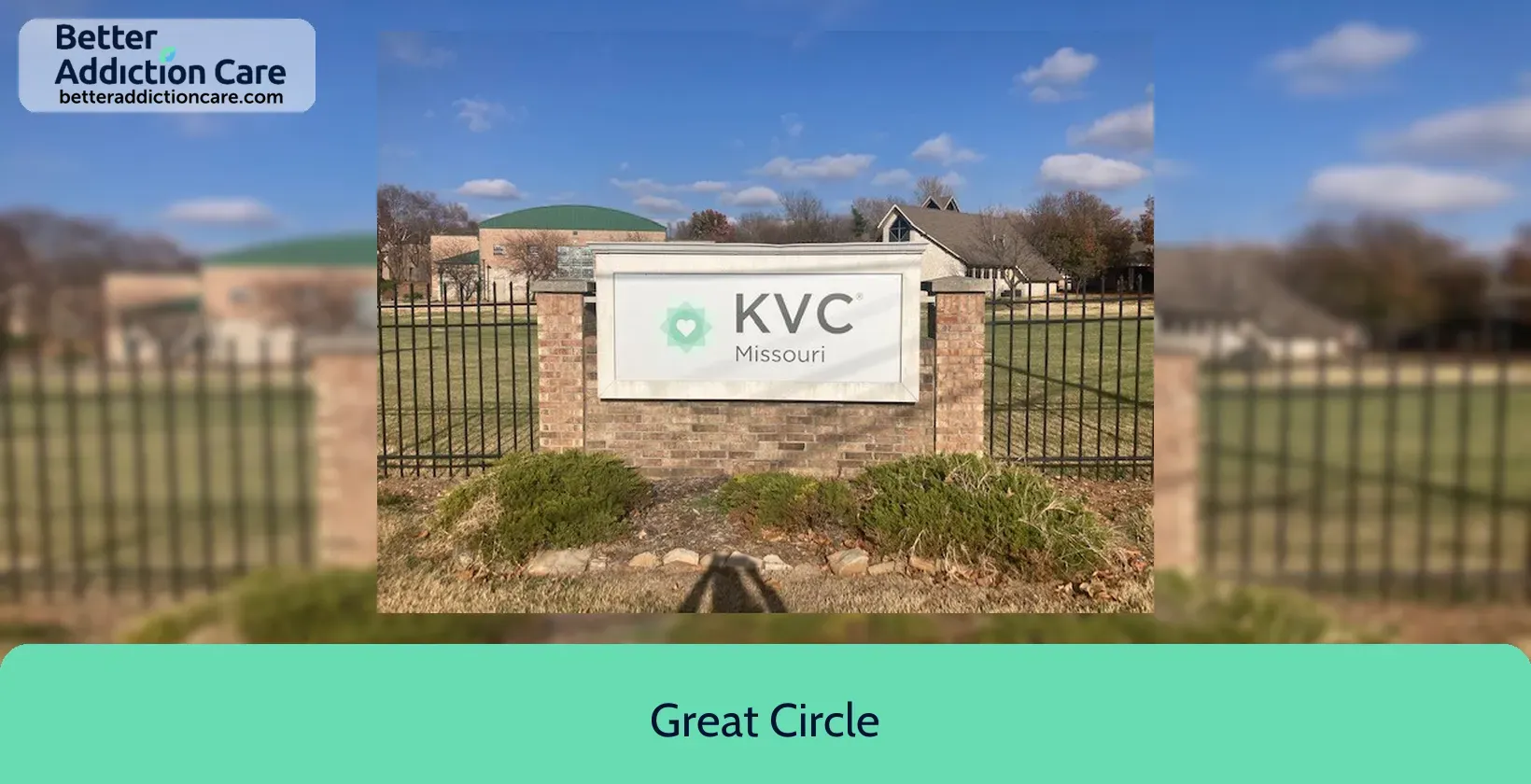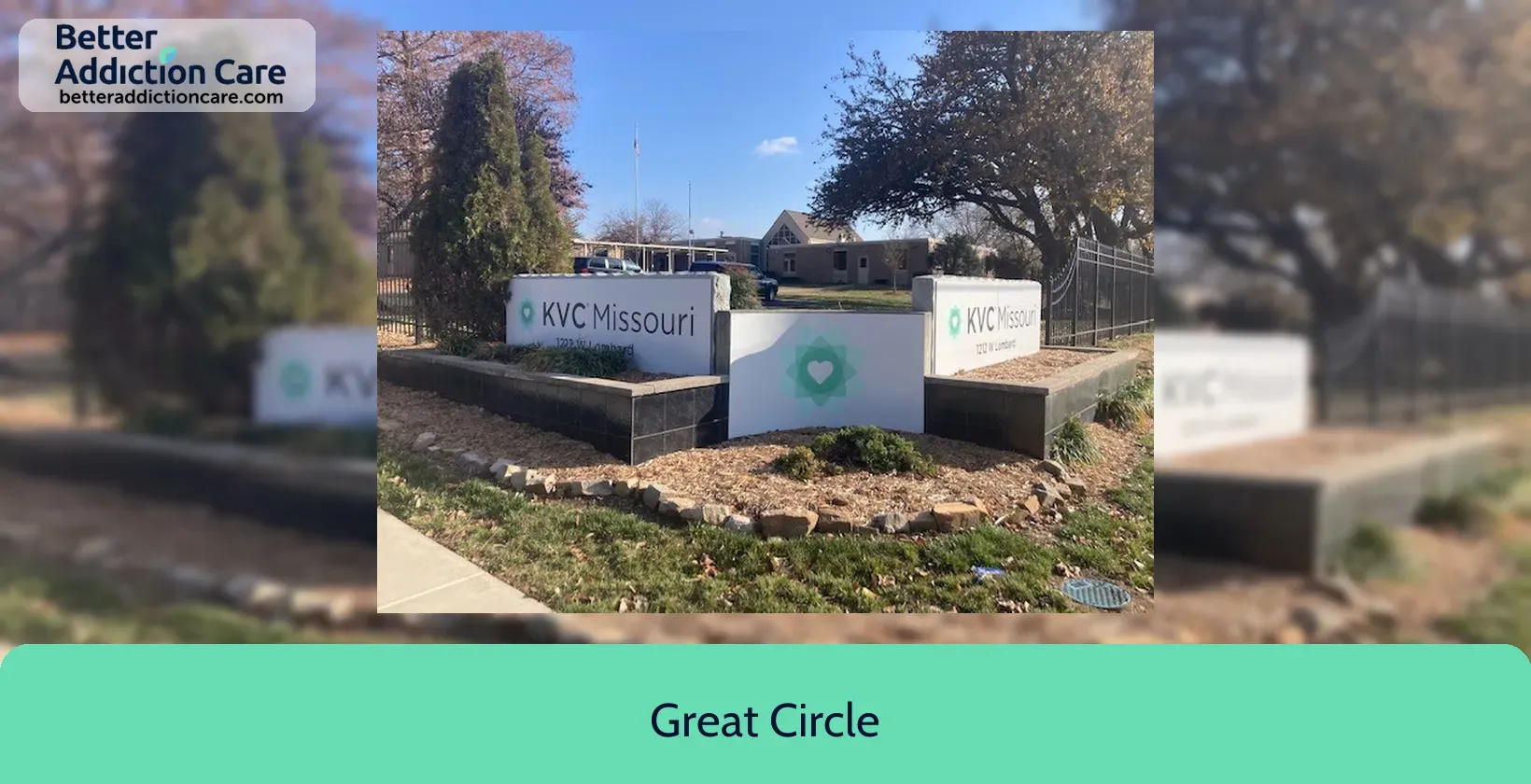Great Circle
Overview
Great Circle is a mental health treatment center for people seeking treatment near Greene County. As part of their treatment modalities for recovery, Great Circle provides couples/family therapy, group counseling, and cognitive behavioral therapy during treatment. Great Circle is located in Springfield, Missouri, accepting cash or self-payment for treatment.
Great Circle at a Glance
Payment Options
- Cash or self-payment
- Medicaid
- State-financed health insurance plan other than Medicaid
- Private health insurance
- State mental health agency (or equivalent) funds
Assessments
- Comprehensive mental health assessment
Age Groups
- Children/adolescents
Ancillary Services
- Intensive case management
- Case management service
- Court-ordered outpatient treatment
- Family psychoeducation
- Psychosocial rehabilitation services
Highlights About Great Circle
6.65/10
With an overall rating of 6.65/10, this facility has following balanced range of services. Alcohol Rehabilitation: 8.00/10, Drug Rehab and Detox: 6.00/10, Insurance and Payments: 6.00/10, Treatment Options: 6.61/10.-
Alcohol Rehabilitation 8.00
-
Treatment Options 6.61
-
Drug Rehab and Detox 6.00
-
Insurance and Payments 6.00
Treatment At Great Circle
Treatment Conditions
- Mental health treatment
Care Levels
- Hospital inpatient treatment
Treatment Modalities
- Couples/family therapy
- Group counseling
- Cognitive behavioral therapy
- Dialectical behavior therapy
- Telemedicine/telehealth therapy
Ancillary Services
Special Programs
- Clients who have experienced trauma
- Children/adolescents with serious emotional disturbance (SED)
- Persons 18 and older with serious mental illness (SMI)
Get Help Now
Common Questions About Great Circle
Contact Information
Other Facilities in Springfield

7.02

6.65

7.03
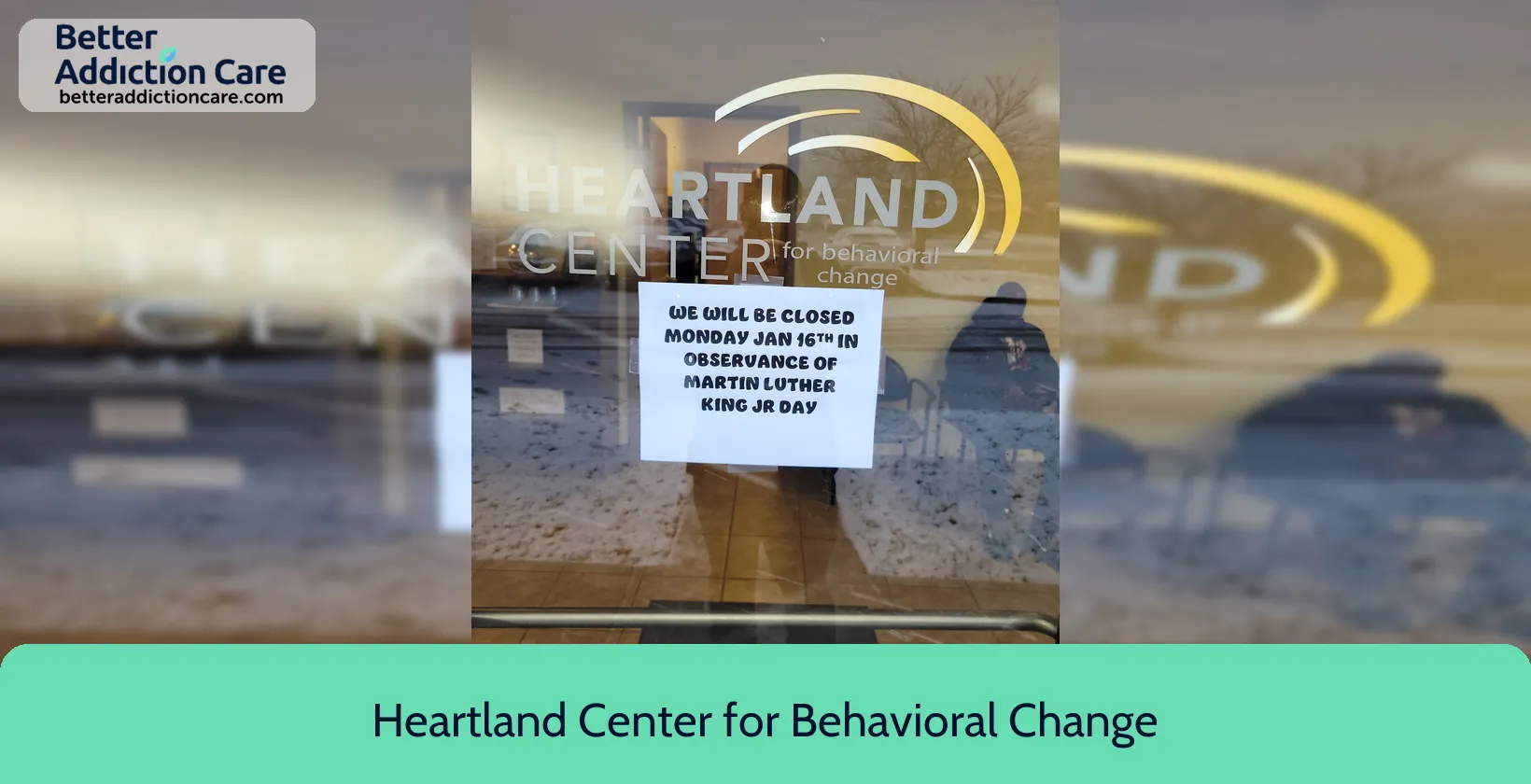
7.27

6.71
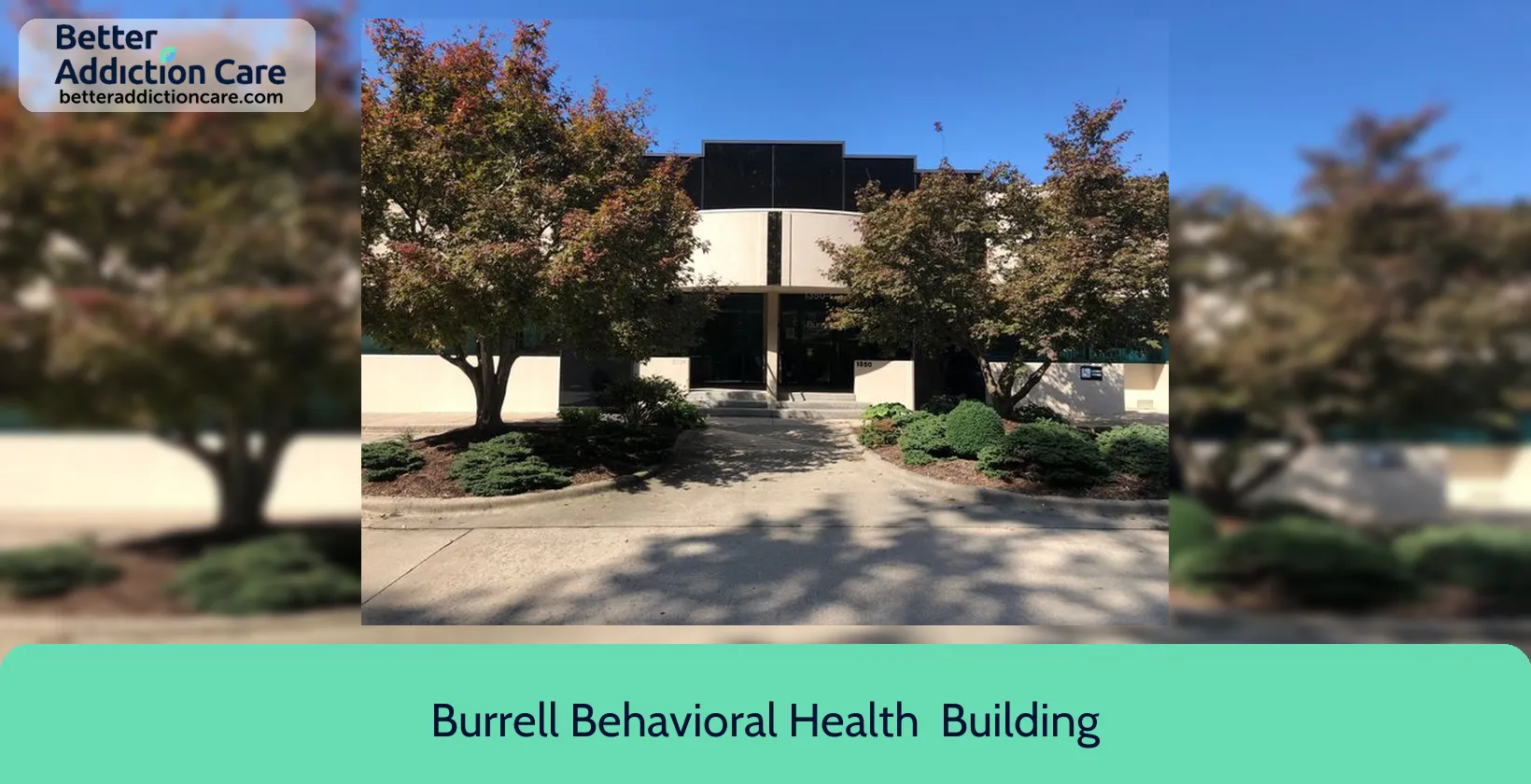
6.71

7.39
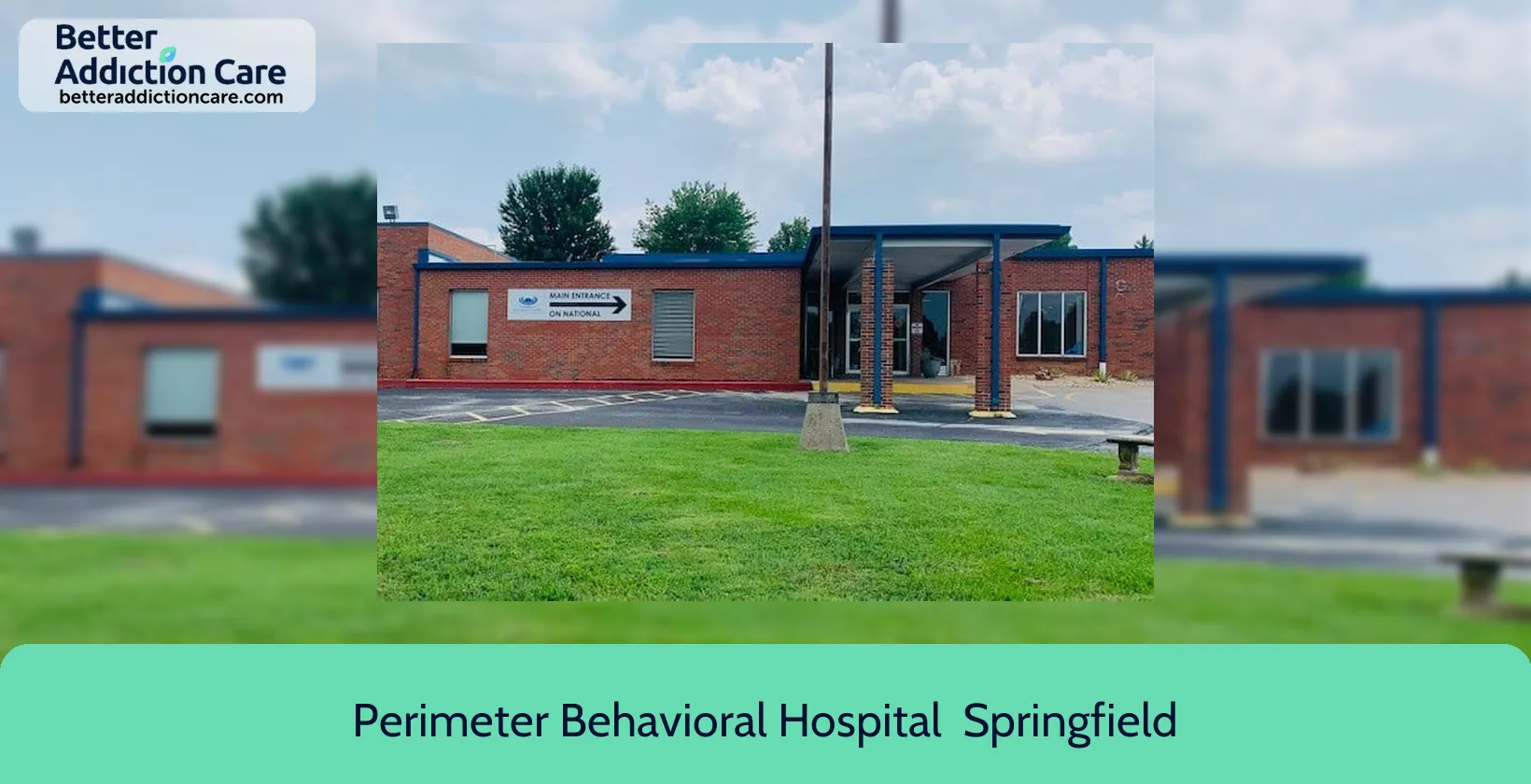
6.68
DISCLAIMER: The facility name, logo and brand are the property and registered trademarks of Perimeter Behavioral Hospital - Springfield, and are being used for identification and informational purposes only. Use of these names, logos and brands shall not imply endorsement. BetterAddictionCare.com is not affiliated with or sponsored by Perimeter Behavioral Hospital - Springfield.
